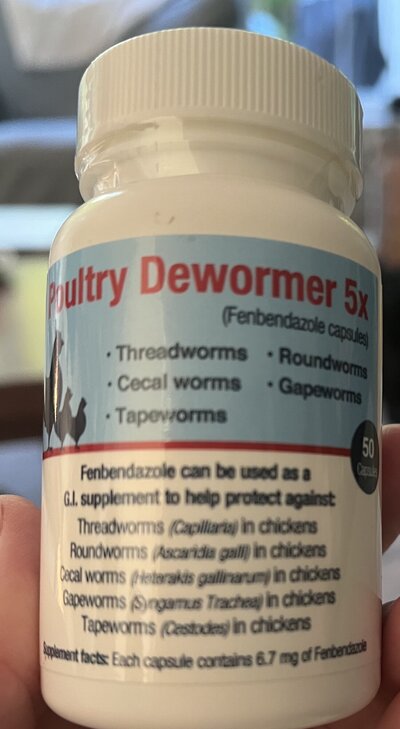- Apr 18, 2017
- 193
- 139
- 171
Good evening! Last year we had round worms in a couple of our hens (meaning all). We treated them when we saw the worms and then retreated them several months later because our ground is often wet and warm. It's the perfect way to continue to the cycle. I've been scrolling through some threads on this but wondering what the recommendation are when treating with Fenbendazole 5X? We have 7, 10 week old babies who we have to consider. But we definitely need to worm. We're beginning to notice our hens feathers starting to break off and look disheveled. That happened the last time we knew we had worms. Also curious if that's a typical "symptom". Any info you want to share, we'd certainly love to hear! We've had chickens for 5 years and I've learned that we're always learning.
Finally, does anyone use DE as a preventative?
Thank you!
Finally, does anyone use DE as a preventative?
Thank you!






